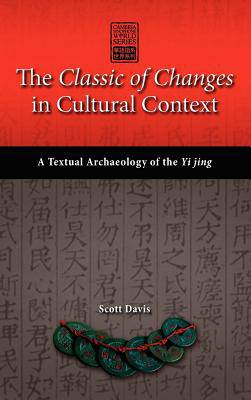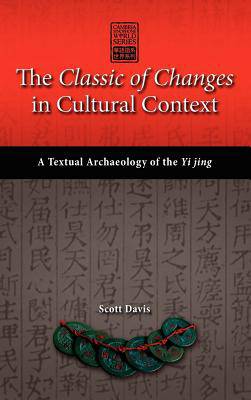
- Retrait gratuit dans votre magasin Club
- 7.000.000 titres dans notre catalogue
- Payer en toute sécurité
- Toujours un magasin près de chez vous
- Retrait gratuit dans votre magasin Club
- 7.000.0000 titres dans notre catalogue
- Payer en toute sécurité
- Toujours un magasin près de chez vous
156,45 €
+ 312 points
Description
The Classic of Changes (Yi jing) is one of the most ancient texts known to human civilization, always given pride of place in the Chinese classical tradition. And yet the powerful fascination exerted by the Classic of Changes has preserved the archaic text, widely attracting readers with a continuing interest in trying to understand it as a source of reflection and guide to ordinary circumstances of human life. Its monumental influence over Chinese thought makes the text an indispensable element in any informed approach to Chinese culture.Accordingly, the book focuses on the archaic core of the Classic of Changes and proposes a structural anthropological analysis for two main reasons. First, unlike many treatments of the Yi jing, there is a concern to place the text carefully in the context of the ancient culture which created it, allowing a fuller appreciation of its divinatory mission, a unique orientation towards writing and literature. Second, the approach differs from traditional exegesis which did not and ultimately could not address problems of textual understanding in a holistic sense. This book is not a translation of the Classic of Changes; it is a careful interpretation, or rather method of exploration, of the connectivities and topography of the text as a whole. By isolating the social forms of an individual life, against the background of the archaic cosmology, as the structural preconditions for each randomized divination, this analysis succeeds in illuminating dimensions of early Chinese life that would not otherwise be accessed through other historical or archaeological materials. This provides a penetrating anthropological view into the conditions of thought in an archaic society to a degree previously unavailable. This book is thus a bold and powerful attempt at modeling an ancient culture in a way never before conceived sociologically, a profound auto-ethnography teaching us about the philosophical anthropology of its makers and preparing the way for further understanding of later classical texts. It will be of interest to all those engaged in seeking philosophical anthropological understanding of culture and writing, and especially contributes to the study of cultures of antiquity and their modes of thought. Anyone interested in complex, formalized classification systems would want to consider this analysis.
Spécifications
Parties prenantes
- Auteur(s) :
- Editeur:
Contenu
- Nombre de pages :
- 306
- Langue:
- Anglais
- Collection :
Caractéristiques
- EAN:
- 9781604978087
- Date de parution :
- 08-08-12
- Format:
- Livre relié
- Format numérique:
- Genaaid
- Dimensions :
- 152 mm x 229 mm
- Poids :
- 616 g

Les avis
Nous publions uniquement les avis qui respectent les conditions requises. Consultez nos conditions pour les avis.






